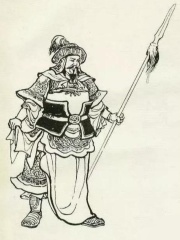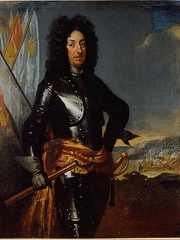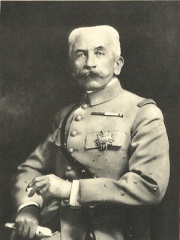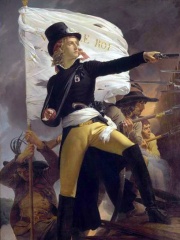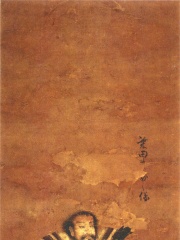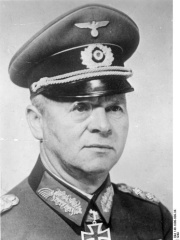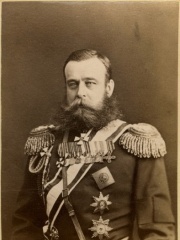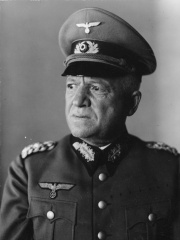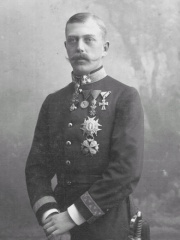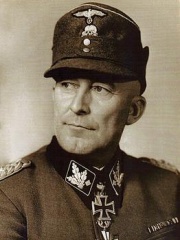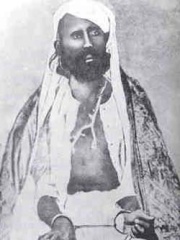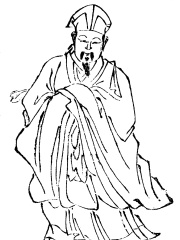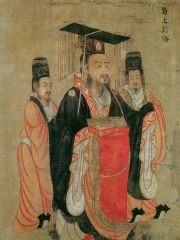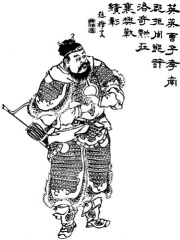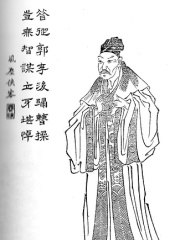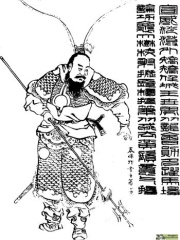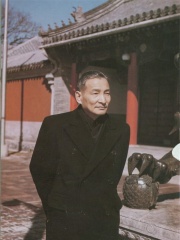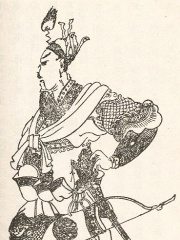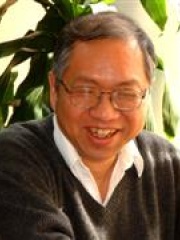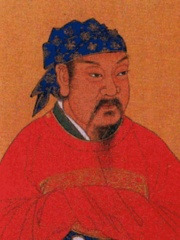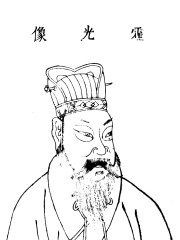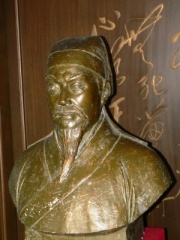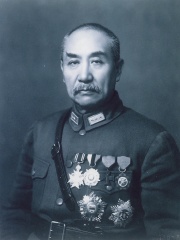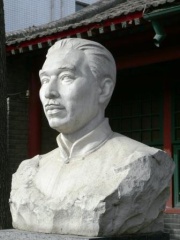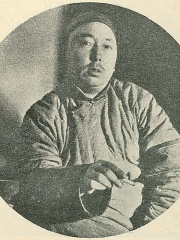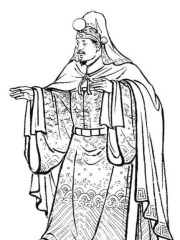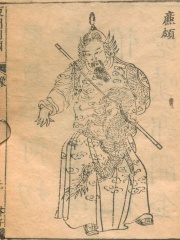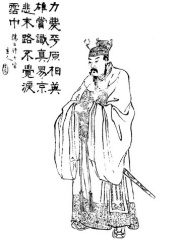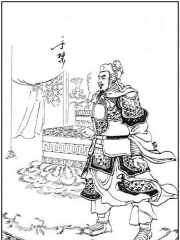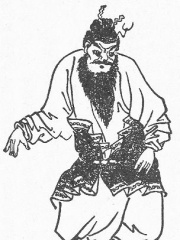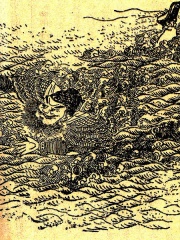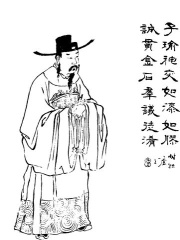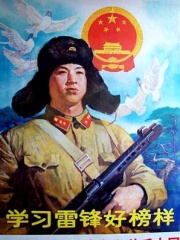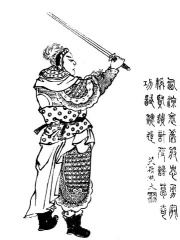Military Personnel
Zhou Tai
163 - 223
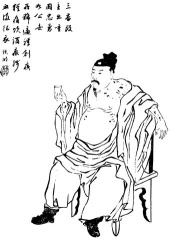
 Zhou Tai
Zhou Tai
Zhou Tai () (died c. 223), courtesy name Youping, was a military general serving under the warlord Sun Quan during the late Eastern Han dynasty and early Three Kingdoms period of China. He previously served under Sun Ce, Sun Quan's elder brother and predecessor. Read more on Wikipedia
His biography is available in 16 different languages on Wikipedia. Zhou Tai is the 695th most popular military personnel (down from 574th in 2024), the 432nd most popular biography from China (down from 389th in 2019) and the 41st most popular Chinese Military Personnel.
Memorability Metrics
Page views of Zhou Tai by language
Among Military Personnels
Among military personnels, Zhou Tai ranks 695 out of 2,058. Before him are Yue Jin, Adam Ludwig Lewenhaupt, Hubert Lyautey, Henri de la Rochejaquelein, Mark W. Clark, and Shibata Katsuie. After him are Georg Stumme, Mikhail Skobelev, Wilhelm Adam, Archduke Joseph Ferdinand of Austria, Matthias Kleinheisterkamp, and Tatya Tope.
Most Popular Military Personnels in Wikipedia
Go to all RankingsYue Jin
200 - Present
HPI: 64.78
Rank: 689
Adam Ludwig Lewenhaupt
1659 - 1719
HPI: 64.72
Rank: 690
Hubert Lyautey
1854 - 1934
HPI: 64.71
Rank: 691
Henri de la Rochejaquelein
1772 - 1794
HPI: 64.71
Rank: 692
Mark W. Clark
1896 - 1984
HPI: 64.71
Rank: 693
Shibata Katsuie
1522 - 1583
HPI: 64.69
Rank: 694
Zhou Tai
163 - 223
HPI: 64.68
Rank: 695
Georg Stumme
1886 - 1942
HPI: 64.68
Rank: 696
Mikhail Skobelev
1843 - 1882
HPI: 64.67
Rank: 697
Wilhelm Adam
1877 - 1949
HPI: 64.64
Rank: 698
Archduke Joseph Ferdinand of Austria
1872 - 1942
HPI: 64.64
Rank: 699
Matthias Kleinheisterkamp
1893 - 1945
HPI: 64.64
Rank: 700
Tatya Tope
1814 - 1859
HPI: 64.63
Rank: 701
Contemporaries
Among people born in 163, Zhou Tai ranks 2. Before him is Xun Yu. Among people deceased in 223, Zhou Tai ranks 6. Before him are Liu Bei, Pope Callixtus I, Athenaeus, Cao Ren, and Jia Xu. After him is Cao Zhang.
Others Born in 163
Go to all RankingsOthers Deceased in 223
Go to all RankingsLiu Bei
POLITICIAN
161 - 223
HPI: 78.72
Rank: 1
Pope Callixtus I
RELIGIOUS FIGURE
180 - 223
HPI: 75.70
Rank: 2
Athenaeus
WRITER
200 - 223
HPI: 73.38
Rank: 3
Cao Ren
MILITARY PERSONNEL
168 - 223
HPI: 67.28
Rank: 4
Jia Xu
POLITICIAN
147 - 223
HPI: 66.63
Rank: 5
Zhou Tai
MILITARY PERSONNEL
163 - 223
HPI: 64.68
Rank: 6
Cao Zhang
POLITICIAN
190 - 223
HPI: 63.45
Rank: 7
In China
Among people born in China, Zhou Tai ranks 432 out of 1,610. Before him are Chen Yun (1905), Zhuge Zhan (227), Yue Jin (200), Shing-Tung Yau (1949), Emperor Wu of Song (363), and Huo Guang (-150). After him are Wen Tianxiang (1236), Yan Xishan (1883), Mao Dun (1896), Demchugdongrub (1902), Yuen Siu-tien (1912), and Zhu Youlang (1623).
Others born in China
Go to all RankingsChen Yun
POLITICIAN
1905 - 1995
HPI: 64.81
Rank: 426
Zhuge Zhan
POLITICIAN
227 - Present
HPI: 64.78
Rank: 427
Yue Jin
MILITARY PERSONNEL
200 - Present
HPI: 64.78
Rank: 428
Shing-Tung Yau
MATHEMATICIAN
1949 - Present
HPI: 64.73
Rank: 429
Emperor Wu of Song
POLITICIAN
363 - 422
HPI: 64.69
Rank: 430
Huo Guang
POLITICIAN
150 BC - 68 BC
HPI: 64.68
Rank: 431
Zhou Tai
MILITARY PERSONNEL
163 - 223
HPI: 64.68
Rank: 432
Wen Tianxiang
WRITER
1236 - 1283
HPI: 64.65
Rank: 433
Yan Xishan
POLITICIAN
1883 - 1960
HPI: 64.64
Rank: 434
Mao Dun
WRITER
1896 - 1981
HPI: 64.62
Rank: 435
Demchugdongrub
POLITICIAN
1902 - 1966
HPI: 64.62
Rank: 436
Yuen Siu-tien
ACTOR
1912 - 1979
HPI: 64.61
Rank: 437
Zhu Youlang
POLITICIAN
1623 - 1662
HPI: 64.59
Rank: 438
Among Military Personnels In China
Among military personnels born in China, Zhou Tai ranks 41. Before him are Lian Po (-250), Gongsun Zan (null), Yu Jin (200), Huang Gai (145), Pang De (170), and Yue Jin (200). After him are Zhuge Jin (174), Wei Qing (-150), Lei Feng (1940), Ma Dai (183), Ling Tong (189), and Chen Youliang (1320).
Lian Po
250 BC - Present
HPI: 65.93
Rank: 35
Gongsun Zan
HPI: 65.65
Rank: 36
Yu Jin
200 - 221
HPI: 65.62
Rank: 37
Huang Gai
145 - 222
HPI: 65.19
Rank: 38
Pang De
170 - 219
HPI: 65.09
Rank: 39
Yue Jin
200 - Present
HPI: 64.78
Rank: 40
Zhou Tai
163 - 223
HPI: 64.68
Rank: 41
Zhuge Jin
174 - Present
HPI: 64.55
Rank: 42
Wei Qing
150 BC - 106 BC
HPI: 64.32
Rank: 43
Lei Feng
1940 - 1962
HPI: 64.23
Rank: 44
Ma Dai
183 - 300
HPI: 64.18
Rank: 45
Ling Tong
189 - Present
HPI: 63.69
Rank: 46
Chen Youliang
1320 - 1363
HPI: 63.58
Rank: 47
